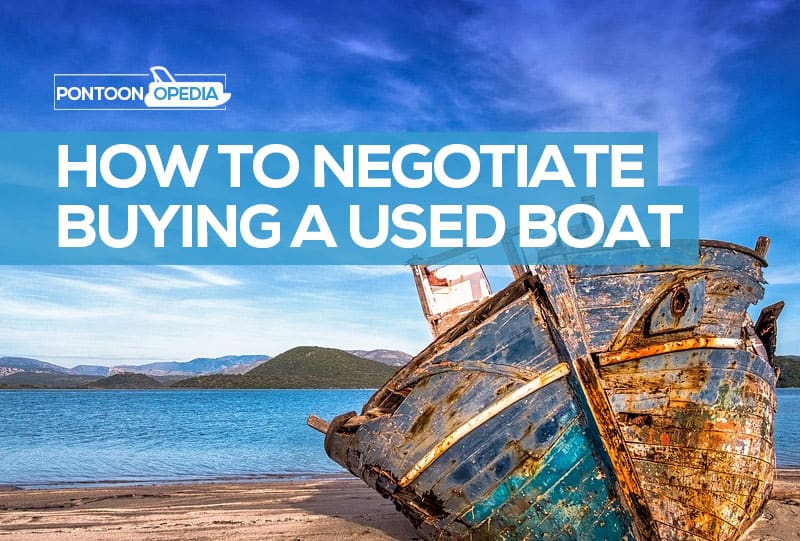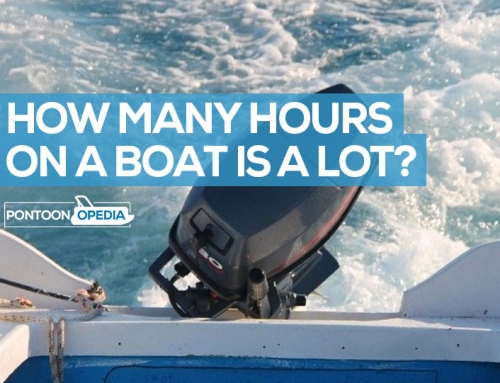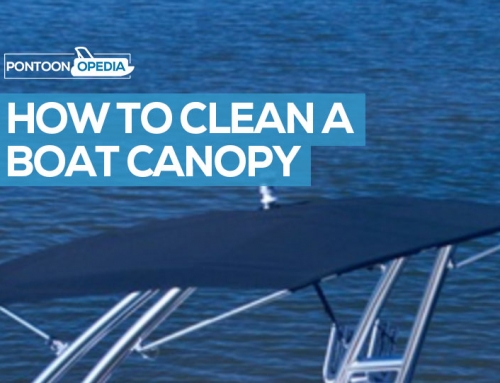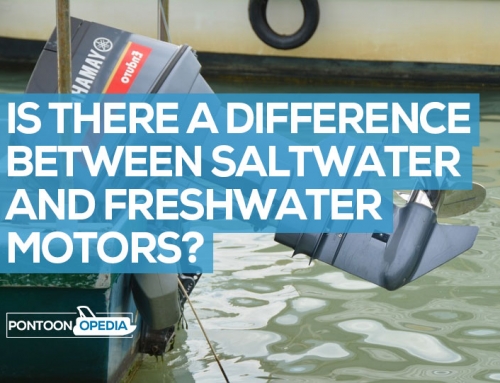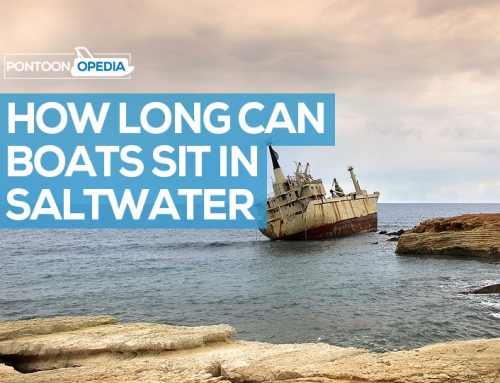Looking for and buying a used boat doesn’t have to be a daunting experience. With a little research and know-how, you can find a used boat in great condition and hopefully manage to get a better deal whether buying privately or from a dealership.
I’ve had many friends ask me for advice on how to negotiate a used boat purchase over the last couple of years given my track record in picking up bargains.
Just like buying a car, or a house, it’s not a purchase decision to make lightly, but with all large purchases there will always be some room for negotiation.
No one wants to pay too much and wind-up with a lemon, and everyone wants to get their used boat as cheaply as possible. Here are my top tips to help you find a quality used boat and negotiate a fair price.
How to negotiate on a used boat from a dealership
Dealers are amongst the best when it comes to brokering a great deal. They will have targets to hit, they could have stock that they need to shift, but above all, they are entirely comfortable with the game of negotiation.
Here are some tips on how to negotiate for a used boat from a dealership.
#1: Go in low at first and don’t be afraid to offend the dealer
Going in really low is a great starting point, but there is a limit to what people might accept from you, and you might even completely offend them.
However, I don’t think you can really upset a dealership with an offer, they will be used to this tactic so don’t be afraid to offer what is an almost crazily low price.
All you are doing here is starting off the negotiation, and it can only go up from here.
#2: Go back and forth with the counter offers
The dealer will come back to you with a counter offer. It’s going to be below their asking price in most cases, so will give you more room to negotiate again.
There could be a few rounds of this, until both you and the dealer settle on a price that is acceptable to both of you.
#3: Ask what extras could be thrown into the deal
Part of the deal you make could be to get some accessories and extras thrown into the price. When I bought from a dealer, I managed to get it below his asking price, but only if he would keep the boat on his premises stored safely until the summer.
That saved me on 3 months’ worth of storage costs so was well worth the negotiation.
I also asked him to include some PFDs and a grill with the deal, and eventually he did that.
#4: Don’t get emotionally attached to the boat
I find that you will negotiate a lot better if you aren’t emotionally invested in the used boat. The best way to do that is to keep your options open and be prepared to travel to get the best price.
Make the dealership aware that you are also talking with other dealers, and show them print-outs of what you are also looking at.
If you are desperate to buy, the dealer will see that a mile off, and you are never going to get the best price this way.
There’s nothing worse than buying a used boat, then a week later realizing you could have got it for so much less money.
#5: Save money by splitting up the assets
You can save money on taxes by splitting the assets up once the deal has been agreed.
For example, let’s say the used boat comes with a lot of accessories and extras (think grill, extra anchors, etc) then you can see if the dealer can put those on a separate bill of sale.
If the total sale was $50,000 dollars, but the extras total up $10,000 of that, you could get the sale price of the used boat down to $40,000. You would then pay tax on that amount, but not the other $10,000 which was billed separately.
How to negotiate for a used boat from a private seller
Buying privately is almost the same as it would be from a dealer. Knowing how to negotiate buying a used boat from a private seller takes the points I listed above with the dealership, but with some other factors to consider.
Firstly, they might not react as well to a low-ball offer.
You might get a very curt reply back if you completely undercut their asking price.
Private sellers will look on their used boat as an emotional attachment. They might have had it for years and made lots of memories with it. And in truth, they are always going to think that their pride and joy is worth more than it really is.
But don’t let that put you off, you could still come back with a new offer, and end up getting the boat eventually.
With the counter offers, you should get to an acceptable price in the end.
A private seller will feel like they have won the battle if you end up meeting them half way on their counter offer. It will massage their ego, and hopefully lead to you getting a very good price on the used boat.
How to negotiate a used boat price as a seller
But what if you are the seller? How can you make sure that you get the best price for your used boat?
The first thing to understand is that you will be in a much stronger selling position if:
- The market is currently strong and used boats are selling quickly.
- You aren’t actually in any particular hurry to sell your boat.
- There are boats like yours up for sale with higher asking prices.
- You have more than one buyer interested in your boat at the time.
If you tick any or all of those boxes above, you’re in a really good position, and should be able to negotiation a higher selling price for your used boat.
Here’s how the negotiating process can work:
#1: Decide your lowest possible price
Before you put your used boat up for sale, decide what the lowest price that you will be prepared to accept is.
If you know what that is, you can put the asking price up higher, and then have wiggle room to come down during a negotiation with the buyer.
All buyers love to think that they got a bargain. If you end up selling below your asking price, but don’t quite get as low as your rock bottom price, both parties win.
#2: Decide your asking price
Your asking price will be above your rock-bottom price.
To decide what that will be, take a look at what’s selling in your local area. Boat prices differ depending on where you are in the country, so set the asking prices according to local rates.
#3: Dismiss the initial buyer’s offer if low-balled
I can’t imagine any buyer will come to you and offer the asking price straight off the bat.
In most cases they will start off with a low offer, knowing that it can only have to go up.
What this does do, is let you know that they are serious, and you should be able to negotiate them up.
Even if it’s an insulting offer, don’t be rude. It’s just the start of the game, and that low offer buyer could be the person that you send up selling your used boat to.
#4: Make a counter offer
Once their initial offer gets tabled, respond back with a counter offer. That could be your asking price, but you’re going to get a far better dialogue with the buyer if you go just below it.
I would come down in incremental 10% steps to see when they bite. Keep doing so until you meet them half way or you’re happy with the final offer.
#5: Play buyers off against each other
And by this I don’t mean fraudulently by giving the buyer false information on what other people are offering, but instead make them aware of multiple offers.
Keep all buyers in the loop, and you should be able to negotiate the best price for your used boat.
#6: Consider other sale factors
During the negotiation process, the used boat buyer might ask you if you can keep the boat in storage until they are ready to take it. They might also ask you throw accessories into the deal or transport the boat to a location of their choice.
These factors could help you bump the sale price up.
What to look for in a used boat can also help you negotiate on price
#1: Look into the models you’re going to inspect, especially the motor
Research is paramount; it’s important to go into any used boat inspection with some knowledge of the make and model. There are plenty of reviews online to help you out, as well as used boat sale websites. These can give you a good idea of a boat’s market value from the get-go.
Not all motor brands are made equal, and this will affect the value of any used boat. Do some research before an inspection so you have some idea of whether the vessel has a top notch or run-of-the-mill motor.
You will also need to clarify if this is the boats original motor, or whether it was upgraded or replaced at any point.
#2: Assess the boat for its age: but more attention on usage and storage history
The age of a boat is going to tell you a lot about what materials were used in its construction, as well as how much wear and tear you might expect.
However, the amount of usage it has seen, as well as its storage history, are going to trump its age.
Some boats have spent a great deal of their lives in a garage, while others have seen constant use.

This one has seen better years – don’t forget to inspect the whole boat for wear and tear.
Ask if it has been in any collisions and inspect the damaged or repaired area. If it has been stored in a garage for its entire life, it is going to be in better condition, and worth more, than if it’s been exposed to the elements.
Don’t forget to ask about the boat’s provenance– arecorded history of its previous owners. If the current owner cannot provide this to you, be wary.
A boat with 1-2 owners on record is worth more than one with many owners, especially if they’re not all on the record.
#3: Take the boat out on the water: if you can’t test drive, walk away
Always take the boat out with the owner for a test run.
Pay attention to the motor: did it start smoothly or is there any excessive noise, vibration or smoke?
Old gas or too much oil can be fixed but might be a sign of a bigger problem.
Check the ease of steering, the stability of the seats, the temperature gauge and any navigation instruments.
#4: Ask for the boat’s service history
Just like a car, you want to know if the owner(s) have taken good care of a used boat and serviced it regularly.
Ask to take a look at the logbook, or ship’s log.
If the current owner can’t present you with one, this is going to de-value the vessel.
A verbal history might be enough if it has just had the one owner.
But still, be aware that not having a copy of the boat’s logbook, whether physical or electronic, can make it a risky purchase.
#5: Physically inspect the boat in and out of the water
- Check the motor: Check the motor while the boat is on land. If there is any damage you can use that to leverage your price point. If there is some damage on the skeg this could indicate that the boat was driven too hard, or maybe it had a lot of use in shallow water. You want to find out what the boat was primarily used for to give you an indication of how many hours are on that motor.
- Check the oil, electrics and drive belts: If the motor oil is gritty to the touch this can be a sign of engine wear. If there is milky oil in the engine or lower unit, this might be a sign of water getting in. Check the condition of the electric wiring of the battery and motor. A faulty battery can be replaced, but if the labels or wiring look melted on the motor, this could mean problems with overheating. Damaged alternator or power steering belts can be a sign of poor maintenance, so make a note if they’re significantly worn or thin.
- Check the transom: The transom is the part of the hull which links the port and starboard sides of the boat, located at the stern. When the boat is on land, check its condition by pushing your body weight onto the motor. This will allow you to see if anything gives in the transom area. If it has a jack plate (which lies between the transom and the motor) that moves, this could indicate some damage from the boat being driven hard.
- Check the motor bolts: Look around the motor bolts, both inside and outside the hull, to check for any staining. If there is dark staining around the bolts, this means that water has gotten through the transom. This problem with certainly devalue the boat, but it might not be right-off. Point out to the owner that you’ll need to get it looked at in a shop to see if it can be dried out before buying a boat with this issue.
- Look for stress cracks in the hull: Some superficial spider cracks in the hull are normal in boats of a certain age. During your inspection, pay special attention to the fibreglass hull above and below the waterline. You don’t want to find any large cracks more than 2 inches or evidence of collision damage.
- Look for signs of mildew or rot inside the boat: Make sure you do a thorough inspection of the inside of the boat also. Sit in any seats to check their stability, look at the floors and take note of any signs of weakness, mould, or rot. These could indicate some damage to the hull if water is getting in where it shouldn’t.
#6: Consider getting the boat inspected by a qualified marine surveyor
I highly recommend investing in this step if you’re new to the world of boating.
Just like having a mechanic inspect a car, or getting a building inspection on a house, getting the all-clear from a professional will give you peace of mind.
#7: Check the boat’s accessories to see what could be included
When inspecting a used boat, you need to know which accessories the owner is selling it with. Make sure you know this before negotiating a price.
Extras like a fish finder, rod holders, fishing rods, batteries, a trawling motor, marine radio etc can add value to a sale.
Also, don’t underestimate required safety features like fire extinguishers and life jackets.
You should lower your price if the boat doesn’t come with these in good working condition. You can now negotiate based on the overall condition of the boat, and its included accessories.
The last word…
I hope that you have found these tips on how to negotiate a used boat purchasehelpful.
When you make an offer, it can be really exhilarating, but don’t let your emotion get in the way.
If you come into the purchase knowing clearly what you can afford, what you want, and how much you are prepared to negotiate, you should be able to get a great deal on your next used boat.
Handy Hint: If it’s a used pontoon boat you after, here’s what to look for when buying second hand specifically in the pontoon market.

